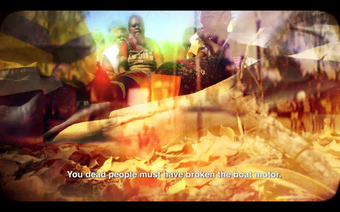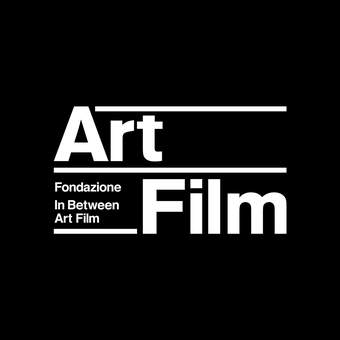Members of Indigenous media collective Karrabing join us to present their full body of films in this weekend series. The collective was initiated in 2008 as a form of critical activism bringing together separate Indigenous clans in Australia’s Northwest Territory in the wake of their government’s Emergency Response intervention – measures taken in the name of protecting Indigenous children that have enabled police to enter homes at will, drastically increased Indigenous incarceration for minor offenses, lead to cuts in social welfare and pressured clans to open their land to mining corporations. These issues are all manifest in the collective’s films, appearing via staged and even humorous scenes that together form an approach the group has called ‘improvisational realism’.
Approaching media production as both a form of self-organisation and social analysis, Karrabing champions collective Indigenous agency through the production of local artistic forms that serve as powerful alternatives to dominant settler-colonial narratives. Their highly inventive cinematic language carves a unique space between artists’ film, activism, narrative cinema and grassroots self-representation.
‘The Karrabing Film Collective uses film to analyze contemporary settler colonialism and through these depictions challenge its grip. In the shadow of Third Cinema and Theater of the Oppressed, Karrabing is creating a new model for Indigenous filmmaking and activism.’ –Karrabing Film Collective
This series includes the UK premiere of two new films, The Jealous One and Night Time Go, as well as an unmissable masterclass by anthropologist, activist and gender studies professor Elizabeth Povinelli, a founding member of the collective that has worked with local Indigenous clans since 1984.
Biography
Karrabing Film Collective (est. 2013, Australia) is a grassroots Indigenous media group consisting of over twenty members. They approach filmmaking as a mode of self-organisation and a means of investigating contemporary social conditions of inequality. Screenings and publications allow the Karrabing to develop a local artistic languages and allow audiences to understand new forms of collective Indigenous agency. Their films represent their lives, create bonds with their land and intervene in global images of Indigeneity. Their films and installations have been exhibited at Contour Biennale, Mechelen, Belgium; Berlinale Forum Expanded; Hallucinations, Athens at documenta 14; Sydney Biennale; vdrome.org; e-flux supercommunity at the Venice Biennale; Doc’s Kingdom, Lisbon; and Wexner Center for the Arts, Columbus, Ohio, among others.


